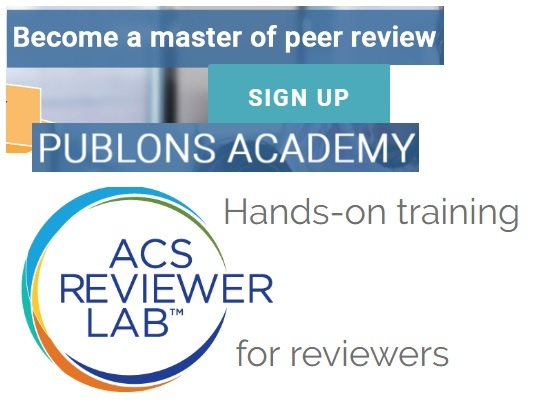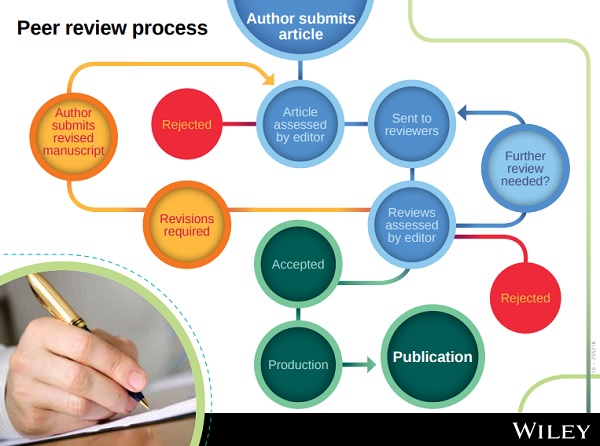Free resources to gain a valuable understanding in Peer-Review processes
18/09/2017


(Image source: WILEY)
Peer Review can be seen as a process matrix of a sequence of activities with rules to progressively assess and predict the quality of published research...
The Review by peers is a tried and tested method for the evaluation of new findings before publication … it places great demands on reviewers whose Assessments must be Honest, Fair, Safe and Independent.
This blog entry presents some free resources that might be useful to train reviewers on how to do their jobs well.
Traditional Peer Review versus Open Peer Review
|
|
Some hands-on training resources for reviewers :
|
|
- Peer Review : from Blinded to Open : the Way Science is Communicated (blog entry, AIMS)
- Opening up the review process with open peer review (blog entry, AIMS)
- Find out about peer review from the experts with our video series (Youtube)
- Infographic: A Guide to Language in Reviewer Reports (WILEY)
- Wiley announces new Data Sharing and Citation policies to improve transparency in research (WILEY)
- Sense about Science is an independent campaigning charity that challenges the misrepresentation of science and evidence in public life.
- Journals Peer Review: Past, Present, Future (Society for Scholarly Publishing, SSP)
- Does Born-Digital Mean Rethinking Peer Review? (Society for Scholarly Publishing, SSP)
